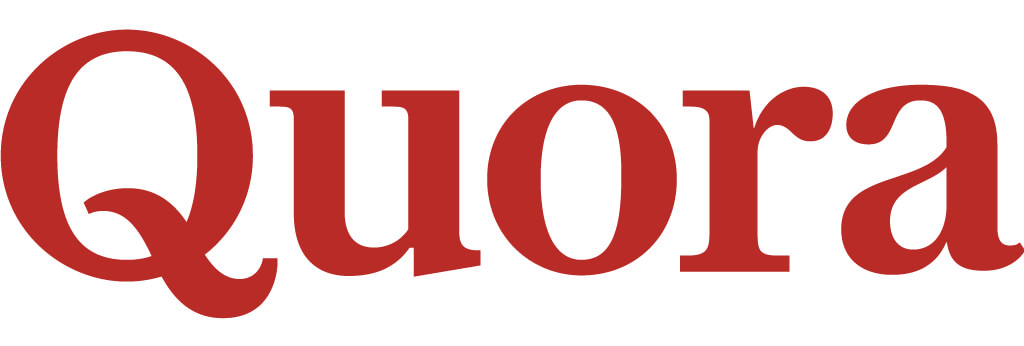Have you ever used the internet to find answers to questions that puzzle you? If so, you might have stumbled upon Quora, a popular platform where people ask and answer questions on countless topics. But have you ever wondered who stands behind this wealth of information? Quora is not just a magical entity floating on the web; it’s a company shaped by real people with a fascinating backstory. In this article, we’ll dive deep into the beginnings and workings of Quora, uncovering the intriguing story of its ownership, its purpose, and where it might be heading in the future.
Quora Overview
Think of Quora as a giant library, but for questions and answers instead of books. It all began in 2009 when two former Facebook employees, Adam D’Angelo and Charlie Cheever, wanted to create a place where people could easily share and gain knowledge. The platform officially went live in 2010, and since then, it has grown into a treasure trove of information, hosting discussions on everything from mathematics, history, science, personal advice, and more.
Quora’s user-friendly interface allows you to ask questions, follow specific topics, and get insights from experts and enthusiasts worldwide. The beauty of Quora lies in its community-driven approach; the users create the content, which makes it both unique and constantly evolving.
Who Owns Quora?
Now, let’s talk about ownership, a term that might not hold for a giant like Quora in the way we might expect for a neighborhood store. Quora is a privately held company, meaning it does not have one single owner like corporations that publicly trade shares on stock markets. Instead, Quora’s ownership is primarily shared among its founders, initial team members, and various investors who’ve contributed financial support over the years.
Adam D’Angelo, one of the co-founders, has been the driving force and has retained a significant amount of control over the company since its inception. Charlie Cheever, the other co-founder, also played a pivotal role in the early days, although he stepped back from his operational role in 2012. Despite departing from day-to-day operations, Cheever stayed on as an advisor, helping to steer the platform through its formative years.
Quora has also received backing from a myriad of investors, with significant funding rounds helping the company expand and innovate. These investments have created a shared ownership structure that supports the company’s growth.
Ownership History of Quora
Let’s embark on a historical journey to see how Quora’s ownership evolved over time. In the startup world, it’s common for ownership stakes to change as companies grow and new investors come on board. Quora’s story follows this path.
In the early stages, Adam D’Angelo and Charlie Cheever held substantial shares of the company, symbolizing their foundational role. As Quora sought external capital to fuel its expansion, it welcomed investors. The first major funding occurred in March 2010, valuing the company at approximately $86 million. This initial round set the stage for future investments.
April 2014 marked a significant milestone when Quora secured $80 million from Tiger Global, a prestigious investment firm. With this injection, Quora’s valuation surged to a reported $900 million. Such investments reflected not only confidence in Quora’s vision but also a transition in its ownership landscape. Over time, as Quora continued to raise funds and expand its operations, the ownership pie was shared among a broader group of stakeholders, including employees contributing to its growth.
The journey doesn’t end here. Quora, as a private entity, remains agile, and its ownership structure can continue to adapt to new opportunities and challenges in the future. As of now, it remains an unlisted company, driven by a diverse group of investors and a passionate community.
What Does Quora Do?
At its core, Quora is on a mission to share and grow the world’s knowledge. Think of it as a digital hub where curiosity meets expertise. You can wander through questions that pique your interest or ask your queries on any topic. This platform democratizes learning by broadening access to information and enabling users to receive insights from people worldwide.
Quora equips you to follow topics or even specific people, curating your feed to display discussions that match your interests. The interaction doesn’t stop at asking questions. Users contribute answers, writing and voting on responses, helping to ensure the most helpful answers rise to the top for everyone to see.
Moreover, Quora emphasizes quality. Through user participation in suggesting edits and giving feedback, it maintains accuracy and reliability. This community-driven moderation is one of the platform’s pillars, fostering a trustworthy environment for acquiring knowledge.
Quora is more than just a forum; it’s a place where everyone from hobbyists to experts engages in meaningful conversations, breaking down complex ideas into understandable discussions.
Where Is Quora Registered?
Curiosity about where Quora is officially registered or located is quite natural. Quora’s headquarters are nestled in Mountain View, California – a bustling tech hub in the heart of Silicon Valley. This location plays a strategic role as it positions Quora alongside other tech giants and innovative companies within this vibrant ecosystem.
Being in Silicon Valley provides Quora access to an expansive network of tech talent and resources, which is invaluable to any tech company aiming to grow and innovate continually.
Quora follows California’s regulations for its corporate structure and operations, and the platform operates globally, allowing users from across the world to join its knowledge-sharing community. Its wide reach showcases why being based in California is advantageous, placing Quora at the crossroads of innovation and global connectivity.
The Future of Quora
Where might Quora go from here? The future of this knowledge-sharing platform holds many possibilities. With digital transformation changing how we interact with information, platforms like Quora have a crucial role to play.
Quora is continually evolving, refining its algorithms to better serve users and exploring ways to enhance the user experience. The possibilities include improving accessibility, integrating new technologies like artificial intelligence to provide more personalized content suggestions, and expanding in international markets to embrace new languages and communities.
Moreover, while ad-free for many years, Quora is slowly experimenting with monetization strategies such as ads and a subscription model, hinting at future revenue streams. This evolution may shape its business model more distinctly while maintaining the integrity and quality of information on the platform.
As innovations unfold, Quora could potentially broaden its educational offerings, partnering with institutions or leveraging its expert community to provide structured learning opportunities. The future might also see Quora expanding its role in professional networking and expert consultation.
The dynamic nature of Quora assures us that while it remains committed to sharing knowledge, its path forward will harness technological advances to foster an even more vibrant and inclusive community.
Conclusion
In essence, Quora is both a question and an answer unto itself. It emerged from a simple yet profound concept of sharing and nurturing the world’s knowledge, built by individuals passionate about making information accessible and valuable. Through our exploration, we’ve seen how Quora is owned by a mix of founders, early employees, and investors, indicating a collective foundation that echoes its community-driven ethos.
From understanding who owns Quora to uncovering what the platform truly does, we’ve navigated through its past, present, and potential future. The journey doesn’t end here, though. Platforms like Quora continue to evolve, pushed by a world hungry for knowledge and innovation.
For those eager to explore more on business and technology landscapes, Business Goal offers insights on these ever-evolving subjects, showcasing how collaboration and innovation drive progress.
Quora stands as a testament to how digital platforms can transfer the knowledge we crave, making it relevant and accessible to people worldwide. Whether you’re a curious learner or a sharer of wisdom, Quora invites you to participate in its ongoing story, where every question adds a new page.














